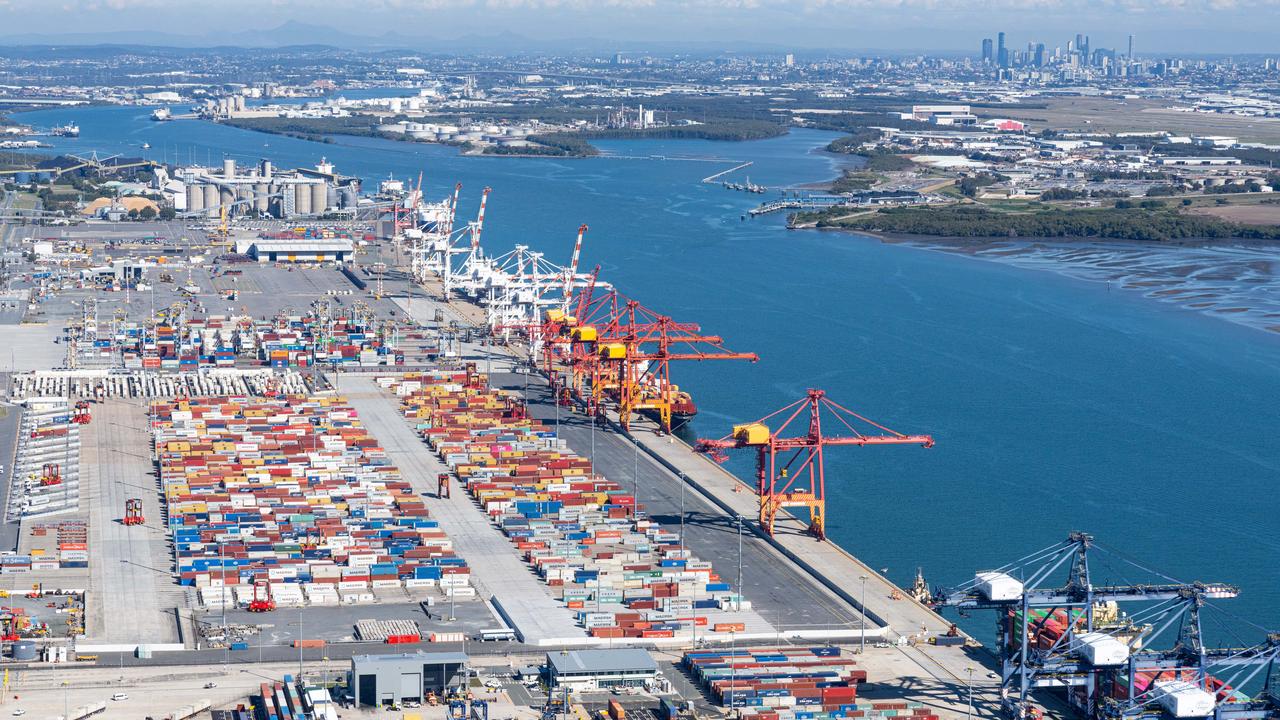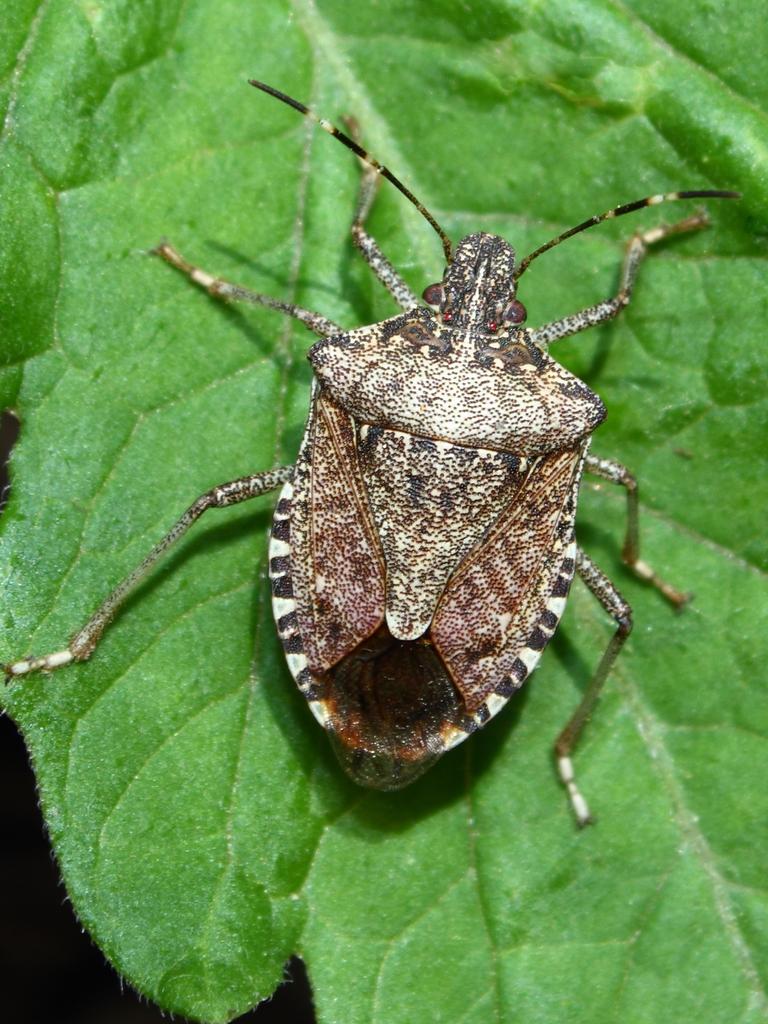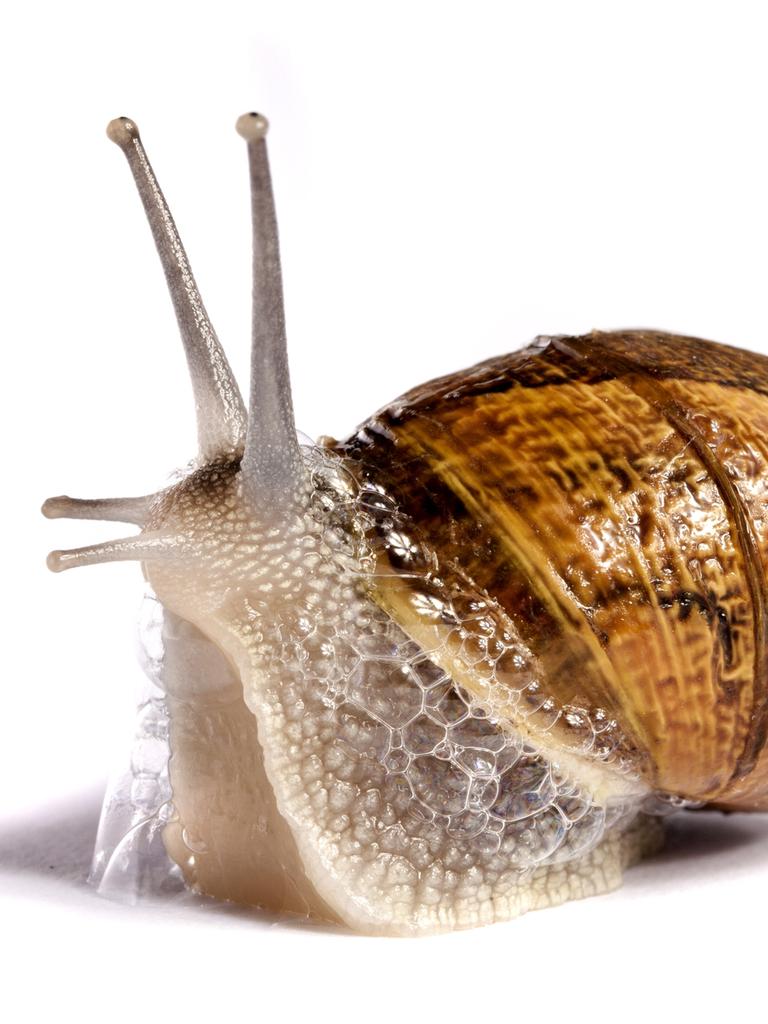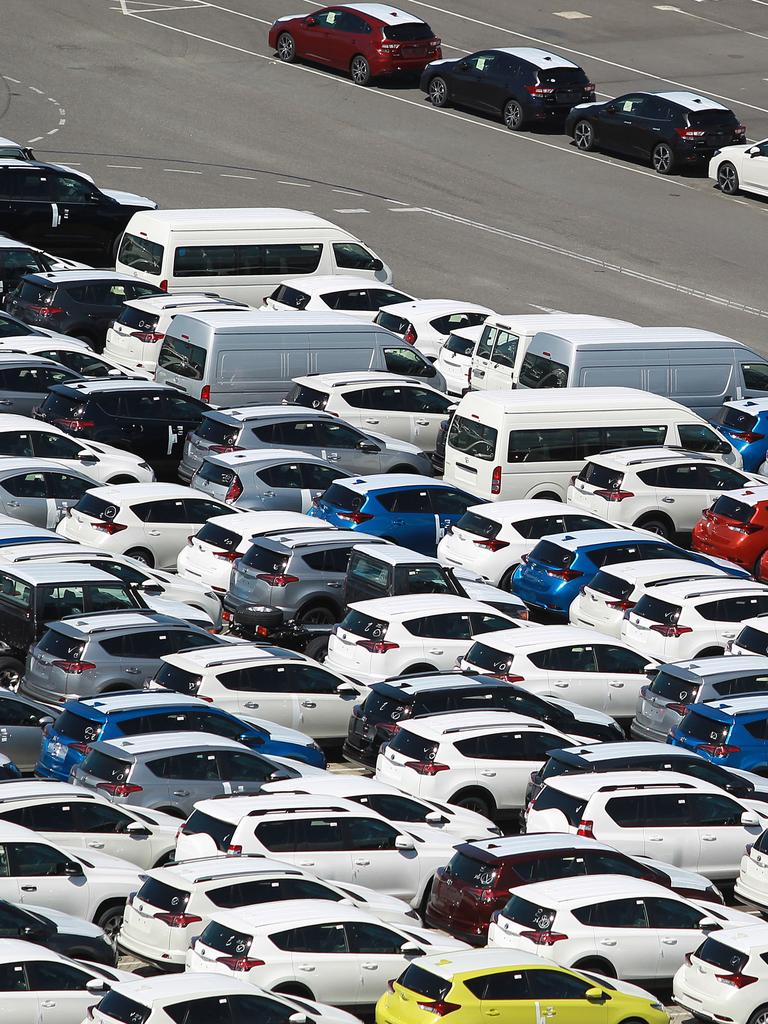Qld new car delays: Snails and other biohazards adding to backlog at ports
Snails and stink bugs are keeping close to 1900 new cars at bay off Brisbane’s coast, adding to a “perfect storm” of delays that’s forcing customers to wait up to two years for their new vehicles. Here’s why.

QLD Business
Don't miss out on the headlines from QLD Business. Followed categories will be added to My News.
Seeds, snails and stink bugs are the latest in a host of issues causing major delays to the delivery of new cars to Queensland that are stretching past two years for the most popular models.
Australia has recorded an 88 per cent spike in new vehicles arriving with contaminated materials since 2021, sparking “serious” biosecurity threats.
The Federal Department of Agriculture, Fisheries and Forestry said in a statement that the vehicles were contaminated with soil, plant debris, seeds and live insects not found in Australia.
The vehicles must be thoroughly cleaned upon arrival at Australian ports, creating a backlog of ships waiting to dock and adding to the waiting time for customers.
It comes after a “perfect storm” of delays including factory closures, semiconductor shortages and supply chain constraints that have blown out waits to more than 16 months for some makes and models.
Nearly 1900 new cars are waiting to be cleaned under the biosecurity measures at the Port of Brisbane, while seven ships are anchored offshore.


The department statement said the contaminated materials posed a “serious” threat to Australia’s agriculture industry and the environment.
“Current delays to the delivery of new vehicles are a direct result of the capacity of the commercial companies to manage the surge in contaminated vehicles arriving at the border,” the statement read.
“Some vehicles may be stored in paddocks or parking lots overseas where they are inadvertently contaminated prior to exportation.”
Qube Holdings is one of the import and export logistics services companies operating out of the Port of Brisbane overseeing some of the contamination processes.
A Qube Holdings spokesman said any contaminated vehicles had to be “thoroughly” cleaned of hazardous materials on arrival, ultimately leading to “unavoidable” delays for customers.
“Right across Australia, ports are experiencing an unprecedented backlog as large numbers of vehicles are arriving contaminated by seeds and other potential biosecurity risks,” a Qube spokesman said.
“The industry is working in close collaboration with authorities and other partners on a range measures to deal with this unprecedented challenge, including establishing new facilities and operating seven days a week, to ensure cars can be cleaned and moved as quickly as possible.”
Port of Brisbane chief executive Neil Stephens said logistics companies were working around the clock to move vehicles as quickly as possible.


Mr Stephens said it was a challenging time for the motor vehicle industry.
“All stakeholders at the Port of Brisbane take issues of biosecurity seriously, and while that may mean some delays on this occasion, it’s imperative we maintain the highest of standards for imported products,” Mr Stephens said.
A Federal Chamber of Automotive Industries spokesman said the screening process for biosecurity risk material was an important and ongoing part of the biosecurity measures.
The spokesman said an increasing demand for new vehicles coupled with ongoing recovery to supply chains and shipping schedules had placed additional stress on vehicle deliveries.
“Car makers are aware customers are impacted,” the spokesman said.
“Which is why all participants – government, port authorities, terminal operators, and car makers – are continuing to work together to move vehicles as quickly as possible while ensuring Australia’s biosecurity boarders remain protected.”






